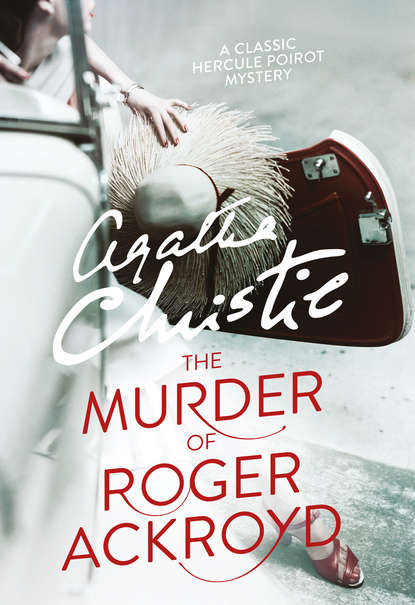По всем вопросам обращайтесь на: info@litportal.ru
(©) 2003-2025.
✖
The Murder of Roger Ackroyd
Автор
Год написания книги
2019
Настройки чтения
Размер шрифта
Высота строк
Поля
“But if it wasn’t Flora, who could it have been?”
Rapidly my sister ran over a list of maidens living in the neighbourhood, with profuse reasons for and against.
When she paused for breath, I murmured something about a patient, and slipped out.
I proposed to make my way to the Three Boars. It seemed likely that Ralph Paton would have returned there by now.
I knew Ralph very well—better, perhaps, than anyone else in King’s Abbot, for I had known his mother before him, and therefore I understood much in him that puzzled others. He was, to a certain extent, the victim of heredity. He had not inherited his mother’s fatal propensity for drink, but nevertheless he had in him a strain of weakness. As my new friend of this morning had declared, he was extraordinarily handsome. Just on six feet, perfectly proportioned, with the easy grace of an athlete, he was dark, like his mother, with a handsome, sunburnt face always ready to break into a smile. Ralph Paton was of those born to charm easily and without effort. He was self-indulgent and extravagant, with no veneration for anything on earth, but he was lovable nevertheless, and his friends were all devoted to him.
Could I do anything with the boy? I thought I could.
On inquiry at the Three Boars I found that Captain Paton had just come in. I went up to his room and entered unannounced.
For a moment, remembering what I had heard and seen, I was doubtful of my reception, but I need have had no misgivings.
“Why, it’s Sheppard! Glad to see you.”
He came forward to meet me, hand outstretched, a sunny smile lighting up his face.
“The one person I am glad to see in this infernal place.”
I raised my eyebrows.
“What’s the place been doing?”
He gave a vexed laugh.
“It’s a long story. Things haven’t been going well with me, doctor. But have a drink, won’t you?”
“Thanks,” I said, “I will.”
He pressed the bell, then coming back threw himself into a chair.
“Not to mince matters,” he said gloomily, “I’m in the devil of a mess. In fact, I haven’t the least idea what to do next.”
“What’s the matter?” I asked sympathetically.
“It’s my confounded stepfather.”
“What has he done?”
“It isn’t what he’s done yet, but what he’s likely to do.”
The bell was answered, and Ralph ordered the drinks. When the man had gone again, he sat hunched in the armchair, frowning to himself.
“Is it really—serious?” I asked.
He nodded.
“I’m fairly up against it this time,” he said soberly.
The unusual ring of gravity in his voice told me that he spoke the truth. It took a good deal to make Ralph grave.
“In fact,” he continued, “I can’t see my way ahead…I’m damned if I can.”
“If I could help –” I suggested diffidently.
But he shook his head very decidedly.
“Good of you, doctor. But I can’t let you in on this. I’ve got to play a lone hand.”
He was silent a minute and then repeated in a slightly different tone of voice:
“Yes—I’ve got to play a lone hand…”
Chapter 4 Dinner at Fernly (#ulink_1b59aa75-1ad2-5ddf-89b0-e38dbcaf95da)
I
It was just a few minutes before half-past seven when I rang the front-door bell of Fernly Park. The door was opened with admirable promptitude by Parker, the butler.
The night was such a fine one that I had preferred to come on foot. I stepped into the big square hall and Parker relieved me of my overcoat. Just then Ackroyd’s secretary, a pleasant young fellow by the name of Raymond, passed through the hall on his way to Ackroyd’s study, his hands full of papers.
“Good evening, doctor. Coming to dine? Or is this a professional call?”
The last was in allusion to my black bag which I had laid down on the oak chest.
I explained that I expected a summons to a confinement case at any moment, and so had come out prepared for an emergency call. Raymond nodded, and went on his way, calling over his shoulder:
“Go into the drawing-room. You know the way. The ladies will be down in a minute. I must just take these papers to Mr Ackroyd, and I’ll tell him you’re here.”
On Raymond’s appearance Parker had withdrawn, so I was alone in the hall. I settled my tie, glanced in a large mirror which hung there, and crossed to the door directly facing me, which was, as I knew, the door of the drawing-room.
I noticed, just as I was turning the handle, a sound from within—the shutting down of a window, I took it to be. I noticed it, I may say, quite mechanically, without attaching any importance to it at the time.
I opened the door and walked in. As I did so I almost collided with Miss Russell who was just coming out. We both apologized.
For the first time I found myself appraising the housekeeper and thinking what a handsome woman she must once have been—indeed, as far as that goes, still was. Her dark hair was unstreaked with grey, and when she had a colour, as she had at this minute, the stern quality of her looks was not so apparent.
Quite subconsciously I wondered whether she had been out, for she was breathing hard, as though she had been running.
“I’m afraid I’m a few minutes early,” I said.
“Oh! I don’t think so. It’s gone half-past seven, Dr Sheppard.” She paused a minute before saying, “I—didn’t know you were expected to dinner tonight. Mr Ackroyd didn’t mention it.”
I received a vague impression that my dining there displeased her in some way, but I couldn’t imagine why.
“How’s the knee?” I inquired.

















